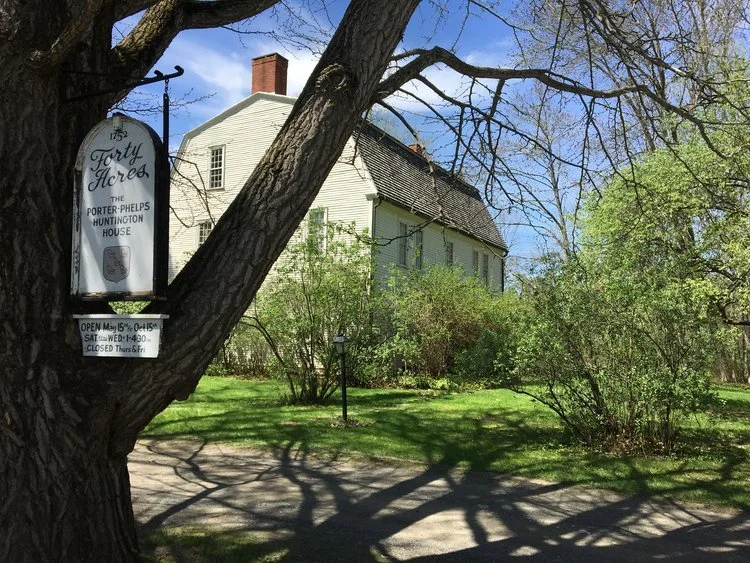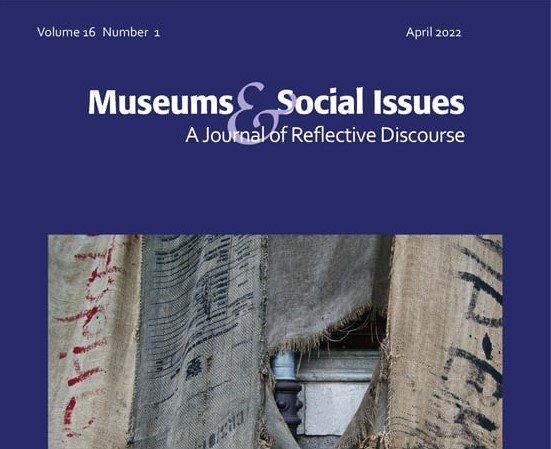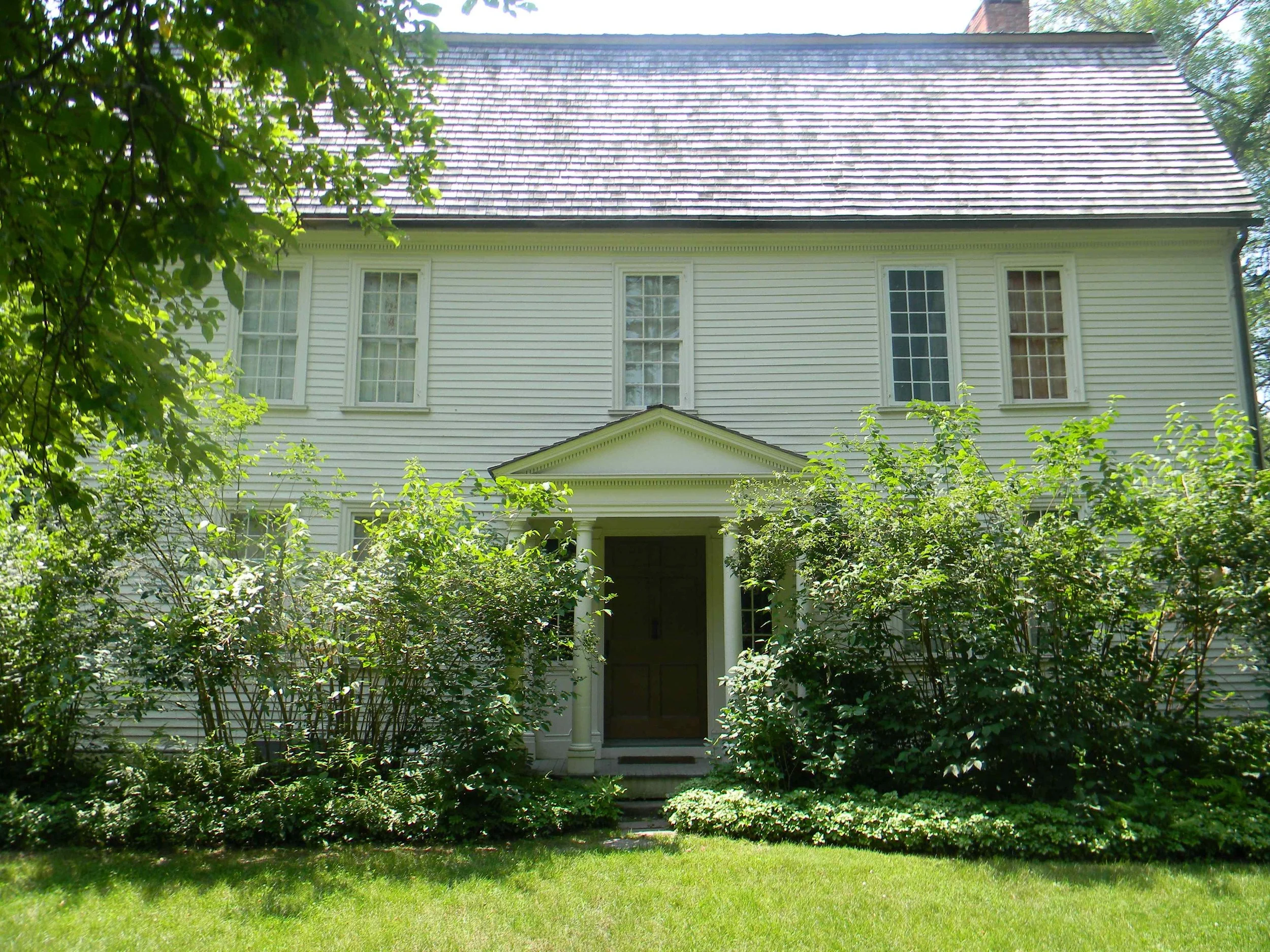Artifacts from Black and Afro-Indigenous residents of Amherst tell a lesser-known history →
New England Public Media | By Jill Kaufman
Published February 12, 2024 at 1:10 PM EST
Several generations of a Black and Afro-Indigenous family from Amherst, Massachusetts, have been archiving photos and artifacts, connected to how and where they and others lived in the town hundreds of years ago.
Dozens of people came out the first week in February to celebrate an exhibit of photos and artifacts that tell largely unknown stories of these Amherst residents.
“Ancestral Bridges: Celebrating Black and Afro-Indigenous families who lived and worked in Amherst in the 18th through early 20th centuries” will be on view in Frost Library through this summer.
The show, on the first and second floor of the library, is curated by Ancestral Bridges founder Anika Lopes. A couture milliner and former Amherst town councilor, she's turned decades of her family's research into the non-profit.
All her life, Lopes said, she has heard from relatives about who and where she came from. Lopes, who is Afro-Indigenous, grew up in the largely white town. For decades, her grandfather and great-grandfather collected artifacts and stories of Amherst residents who started Black businesses and churches in town — and who provided homes to other Black and Afro-Indigenous people coming to Amherst from the South.
After her elder relatives died, Lopes said she sort of inherited the job of keeping their work going.
“[Ancestral Bridges] is a collective of family members, genealogists, experts in the field. We don't put anything out until it's documented. It's not hearsay; it’s not Ancestry.com,” Lopes said.
The public history they’ve been building and showcasing comes from what Lopes called a rare kind of deep dive, not just for her family, but for the public.
“The work [being done] uplifts the Black and Afro-Indigenous history of Amherst,” Lopes said, “that for the most part has been erased and is unknown to most of the community.”
The exhibit at Amherst College has been up since last year, though Lopes added several new artifacts, including a letter from November 1863, which she said shows her family's connection to the Civil War and the Emancipation Proclamation.
“[The] letter was written by Charles Thompson, who is my four times great uncle. He was a member of the Fifth Cavalry during the Civil War," Lopes said.
The letter was written on the back of sheet music, typical of the times. The letter itself is personal and loving, from Thompson to his sister Mary, about longing to see family again. It was recently found by a family member, hidden in a picture frame, Lopes said.
According to the exhibit, Thompson, his father and other family members were among the soldiers in 1865 sent to Gavelston, Texas, to establish the end of slavery — even as the Emancipation Proclamation took effect in 1863.
Also among the photos is one of jazz musician Gil Roberts — born in 1896 in Amherst — posing with a banjo.
At one time, Roberts was internationally acclaimed, but because he was Black, Roberts couldn’t play in the U.S., according to the exhibit. He traveled to Europe, where he performed with Josephine Baker and Louis Armstrong.
Roberts returned to western Massachusetts for health reasons and later worked as a janitor at Amherst College.
The exhibit features several other photos and stories of the college’s 19th century Black employees. It's only recently the school has included them in its history, according to the exhibit.
About a hundred people came out for the late afternoon event, including Lopes’ mother, her 96-year-old aunt, Lopes’ elementary school teacher and a former leader of the Nipmuc tribe in Massachusetts.
“I have to give a special shout-out to all of these ladies in the front row,” Lopes said.
The women have been her mentors, Lopes said, and she "stands on their shoulders."
Shirley Jackson Whitaker, a physician, artist and member of Ancestral Bridges board, was among them. At the microphone, Whitaker spoke about another Ancestral Bridges event she took part in last year, at the Porter-Phelps-Huntington Museumin nearby Hadley.
Whitaker, along with storyteller and former Amherst College Dean of Students Onawumi Jean Moss, were part of a ceremony last September remembering six people enslaved at the Porter-Phelps farm in the 18th century.
Whitaker performed a song she wrote, imagining the experience of one of the enslaved, Margaret (Peg) Bowen, unable to leave anything to her children.
“My little girl, you will always be, even if they take you away from me," Whitaker sang.
Many at the library event, like about 70% of Amherst, were white. To everyone, Lopes reiterated her goal, to make the history and legacy of local Black and Afro-Indigenous people visible.
“We're talking about two cultures that weren't meant to even have a history, let alone know their history, let alone being authority and telling their history,” Lopes said.
Part of that is about what comes next for Amherst.
Allegations of discrimination, including racism, have roiled the school district in recent months. At the same time, there’s a plan underway to distribute a $2 million reparation fund to the town's Black community.














